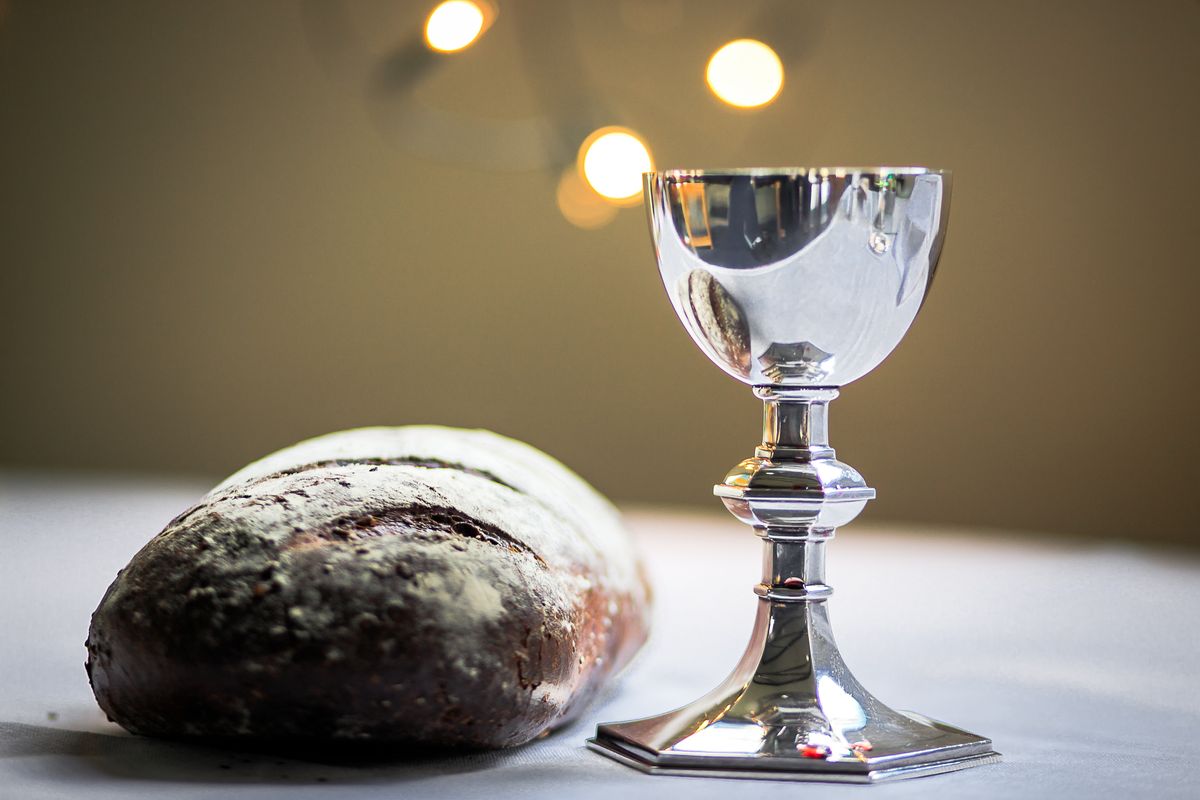Food for thought

After taking the cup, he gave thanks and said, “Take this and divide it among you. For I tell you I will not drink again from the fruit of the vine until the kingdom of God comes.”
And he took bread, gave thanks and broke it, and gave it to them, saying, “This is my body given for you; do this in remembrance of me.”
Luke 22:17-19
The night before Jesus was crucified, he sat down at the table for his final meal with the apostles. We call this the last supper and the Church remembers and re-enacts this meal in what is now called the sacrament of Communion, the Eucharist or Mass, and more commonly referred to as the Lord's supper.
But what exactly is meant by the words Communion and Eucharist?
The word ‘communion’ comes from Latin, meaning ‘union with’ while the word ‘Eucharist’ comes from the Greek word ‘eucharistein’, meaning ‘thanksgiving’
So now that we understand the meaning of the words linguistically, we need to ask a more important question concerning participation in the act of sharing Communion or the Eucharist, about what exactly is taking place?
The Roman Catholic Church (RC) believes in a doctrine called "Transubstantiation". This doctrine states that in the Eucharist, the bread and wine change into the body and blood of Christ himself. The doctrine states:
the whole substance of bread and wine is changed into the substance of the Body of Christ and the substance of his Blood".
This change is said to be a mystery that is brought about in the eucharistic prayer, through the efficacy (the ability to bring change) of the word of Christ, and by the action of the Holy Spirit. However, the outward characteristics of the bread and wine remain unaltered as bread and wine,
Therefore they don't become actual physical flesh and blood! Gross: that would be cannibalism!
Difference of opinion!
Because non-Catholic Christians didn’t fully understand this doctrine, Catholics right up to the present day, have been accused of being cannibals because they talked of eating flesh and drinking blood together. But here's the thing, if you read Matthew's account of the Last Supper in Chapter 26: 26-27, you'll notice that Jesus doesn't talk about an act of remembering but rather simply says of the bread, this is my body, and of the wine, this is my blood of the covenant!
26 While they were eating, Jesus took bread, and when he had given thanks, he broke it and gave it to his disciples, saying, “Take and eat; this is my body.”
27 Then he took a cup, and when he had given thanks, he gave it to them, saying, “Drink from it, all of you. 28 This is my blood of the covenant, which is poured out for many for the forgiveness of sins
Matt 26:26-27
On the other hand, Protestant Christians prefer to think of Communion as an act of thankful remembering, Just as Jesus had asked the disciples to remember him when they sat down to supper as recorded in v19 “This is my body given for you; do this in remembrance of me.
But as Jesus rightly knew, all of us are sinners who through life's journeys have become broken and hurt and in need of His healing restoration. It's only through Christ that any of us find forgiveness, healing, and receive his peace and we do this especially when we partake in Communion-Eucharist. In the sacrament, we ourselves can be said to be "Re-member-ing" as we ourselves are transformed into something new. In Communion-Eucharist, ( ‘union with’), each of us becomes a new creature in the body of Christ as we lose ourselves in something that is far greater than all any of our individual selves could ever become.
As we eat the bread and wine, don't think of the meal as us individually digesting its elements, but instead, think of it as us who are being digested into the body of Christ as we become re-membered through ‘union’ and ‘thanksgiving’.
In the Eucharist, we don’t just remember Jesus, rather we specifically remember the suffering that he endured for us on the cross. The broken bread symbolising his broken body and the wine is his blood that was shed for the sins of the world. For it is only by His sacrifice that we are saved.
As followers of Christ, when we enter into union with Jesus in Communion/Eucharist we are united as we become one with him through his suffering. In this, we become the hands, feet, ears, eyes, and all the different parts of the body of Christ that make up His Church. Through this union, we are grown spiritually and we are gradually transformed into his image. As we sit down at our Lord's table, all of our prayers should be that at that table we find the grace of Christ to become one in the body of Christ.
Have a great day, and God bless,
Trev.